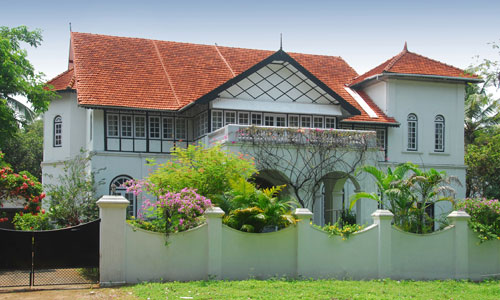Vibrant cities for vibrant economy-III
By: Track2Media Intellisearch
Track2Media Rank-2
Mumbai continues to be the costliest property market in India but the sales graph show this value has started taking its toll on the volume. Property registration in India’s biggest real estate market continued its slide and in September recorded a 29-month low at 4,137, down 22 per cent year-on-year. While the developers are holding the fort so far and transaction moved upwards as well following slump, there is an apprehension of correction of residential property prices in many parts of Mumbai.
The debate in the property market is whether the city property has reached its peak and the only way forward is to go down now. Looking at the trends in all the micro markets of Mumbai, including the suburbs, it would seem that this is a time of transition from a seller’s to a buyer’s market.
However, what has actually let down the city is its infrastructure. Shifting from the traditional rhetoric of location, location, location, the buzz now is infrastructure, infrastructure and infrastructure. After all, a city that stands shoulder-to-shoulder with top luxury markets such as London, Paris and Milan, basic infrastructure is nowhere near international standards. This is despite the fact that about 65% of the apartments launched recently have been positioned as luxury projects.
Anuj Puri, Chairman & Country Head, Jones Lang LaSalle India, however, maintains it is difficult to judge a dynamic market like Mumbai’s on such lines. According to him movement on Mumbai’s residential property market is currently subdued in many central micro-locations. This is because of an oversupply in the mid-income to premium price segments as well as an unrelenting stance by developers on their pricing.
“Sales continue to be healthy in the more rationally priced areas, especially in Navi Mumbai and Thane. Movement is expected to improve as the financial capital’s property market is hard-wired into the general economic scenario, which is undergoing constant fluctuations. Property prices in Mumbai will go through cyclical changes, and there will always be peaks and troughs. That said, the residential property market in many locations of Mumbai is definitely poised on the brink of a trough now,” says Puri.
The ULI-PwC report titled ‘Emerging trends in Real Estate ® Asia Pacific 2011’, also brings to light the fact that residential real estate properties in Mumbai continue to maintain the growth momentum, as foreign investors still consider this market to be extremely viable. The survey ranks Mumbai at the third position, two notches higher than its previous position. The development potential for real estate remains vibrant and promising in Mumbai due to buying opportunities in retail, apartment and industrial sectors.
Mumbai ranked third in the ULI-PwC survey as the most promising investment market, and first as the most favoured development market. “Mumbai is clearly the best performing and most active real estate market,” the report says. Despite some concerns about oversupply, development potential for most real estate sectors remains promising in this city. In terms of investment, buying opportunities “ring out” in the retail, apartment and industrial sectors.
Neeraj Bansal, Director, Risk Consulting, KPMG India asserts that Mumbai has historically been the strongest residential market in India and has proved its resilience during the economic crisis of 2008.
“The increasing inventories, rising interest rates, construction costs and liquidity pressures in the backdrop of scam tainted industry have hit the market sentiment. The market has stagnated over the past one year with buyers largely keeping away from the market with the hope of decrease in the prices in the near future. The developers to rejuvenate the market are exploring new options and are developing new projects, keeping in mind the affordability of the middle income group,” says Bansal.
Atul Modak, Head of Kohinoor City does not believe Mumbai is set for any price correction. He feels with increased interest rates on home loans, the residential property market may remain sluggish as higher EMIs disrupt the financial planning and budgeting of even serious prospective buyers. Also, such factors kill the buyer’s enthusiasm plunging them into low sentiments.
“While the realty market is subject to fluctuations, at the end of the day, the developer or builder is in business. A customer focused developer would love to give his customer the best deal at an optimum price, but one should not forget that the developer is incurring a certain cost. With the steep increase in construction and other costs, how is it possible to reduce prices? I do not believe that Mumbai realty market will go down. At best, it may remain stagnant for some time,” says Modak.
Brokers in Mumbai also add that sales registration is likely to remain low for some time and lesser new launches in 2011 may revive the market only if strong marketing push in the form of attractive discounts is offered. Whether the year 2012 revives the Mumbai realty market or not, only time will tell. However, this scenario also presents an ideal opportunity for ‘opportunistic’ investors betting on the long term prospects of the city. After all, land transactions and valuations have not fallen in Mumbai. This could only either mean that developers have not read the market correctly as yet, or that they genuinely see continued potential for profitability in the long term.
Advantage Mumbai
- Standing tall as luxury market
- Preferred choice of foreign investors
- Headquarter of global brands
- Demand-supply gap
- Buyers’ market in 2012






